How to ignore travel time when searching for resource availability
The Schedule Assistant in Universal Resource Scheduling has an option to “Ignore Travel Time” when searching for availability.
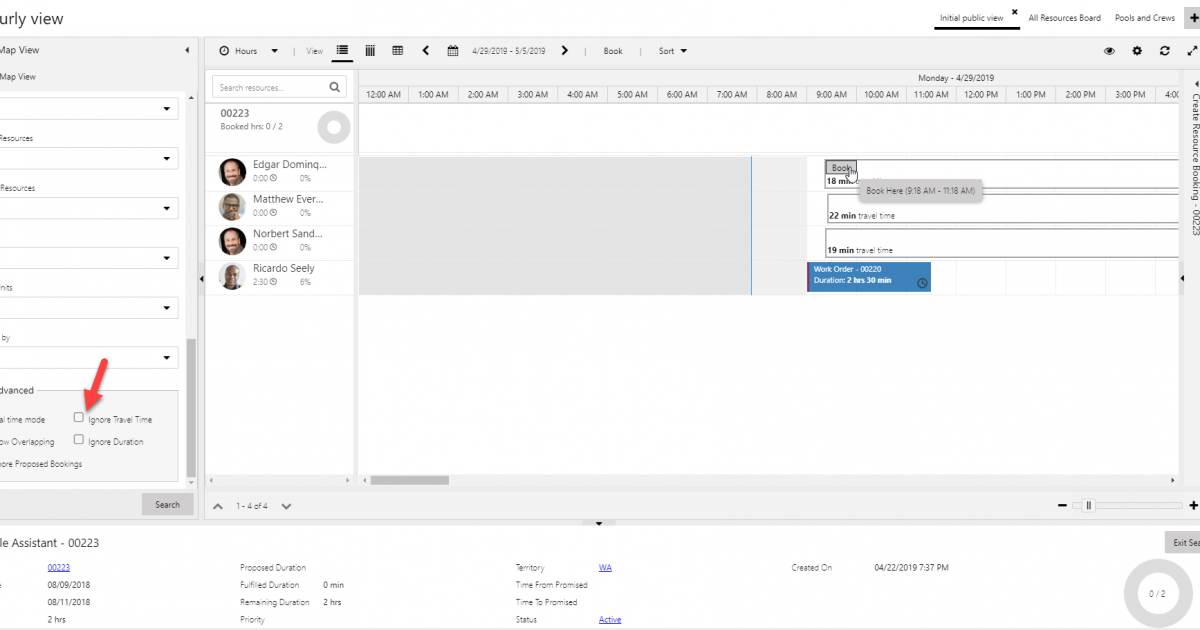
This option allows you to search for a resource within a certain radius, but it does not require the resource to be free for both the entire duration of the requirement AND the time it takes to travel to the requirement. The resource needs to be available only for the duration of the requirement.
For example, below you can see that a booking already exists for Edgar between 11 and the end of the day. This booking is location-agnostic, meaning there is no travel to this booking because it can take place anywhere, such as a phone call. There is an open space available on Edgar’s calendar between 9 and 11. When the scheduler searches for availability using the Schedule Assistant, it does not recommend 9 to 11 as a viable time for the requirement being booked.
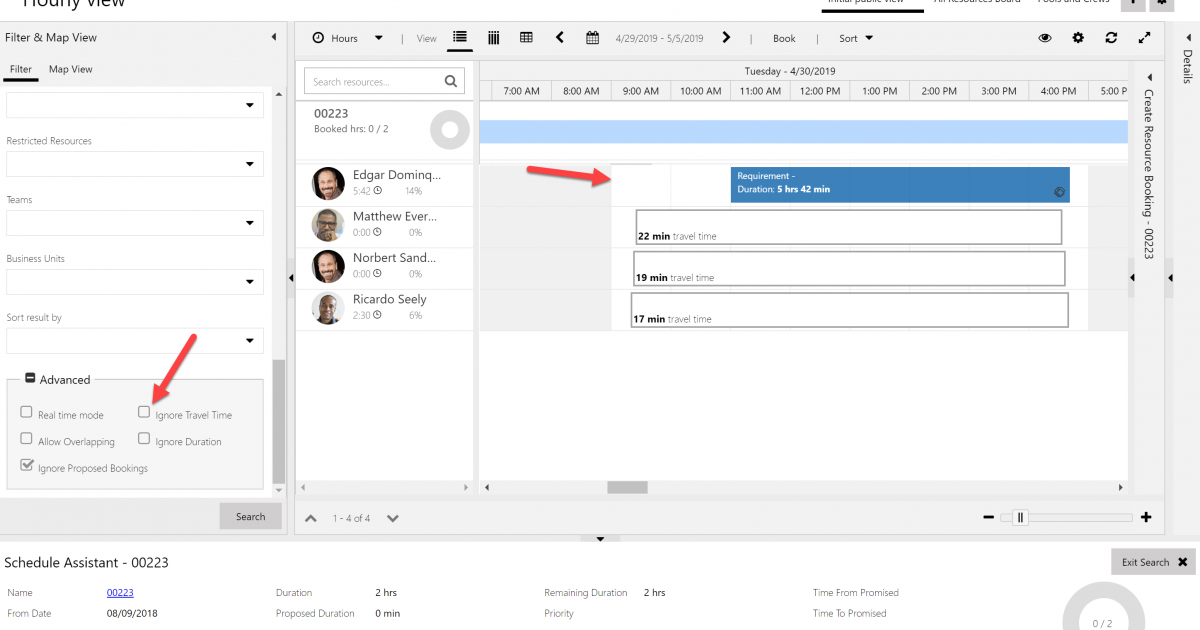
Below you will see that the user chose to “Ignore Travel Time”. As a result, the Schedule Assistant DOES recommend that same block of time. That is because Edgar has two hours free, which is the amount of time the requirement takes. Because the scheduler chose to ignore travel time, the Schedule Assistant does not need to leave time to travel to that requirement.
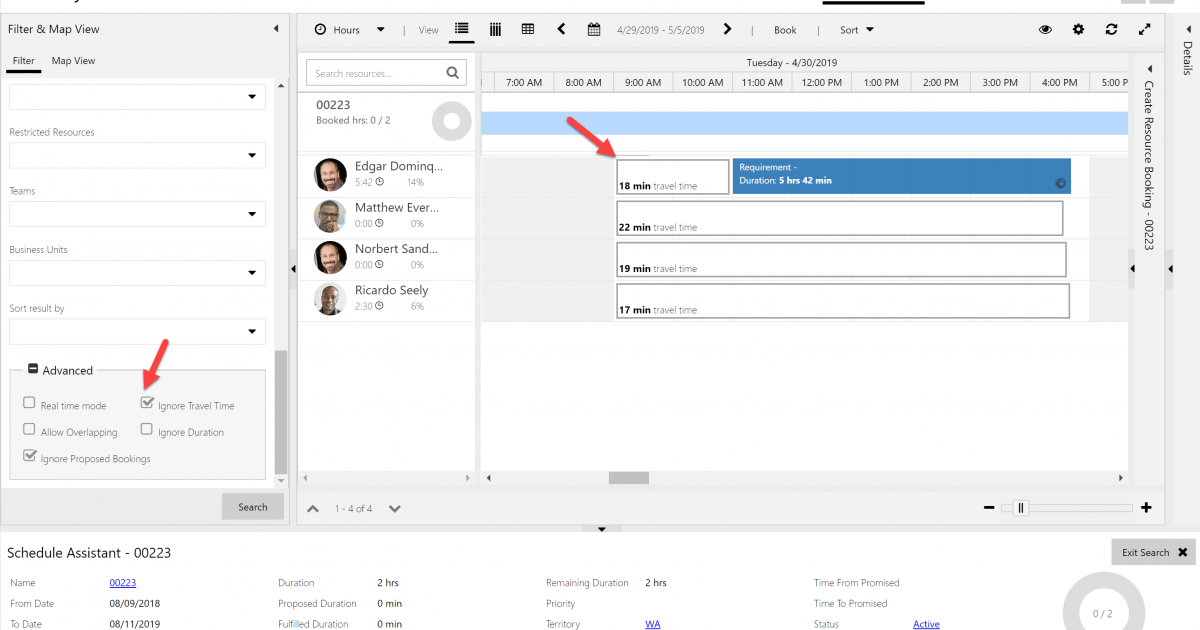
The Schedule Assistant still ensures that the resource travel does not exceed the radius set in the filter panel, and it shows the travel time to the user, but it ignores whether there is enough time to travel.
Additionally, when the user books the requirement and ignores travel time, the Schedule Assistant will only book the two hours, and it will not include the additional travel time in the booking.
Although Ignore Travel Time ignores travel TO the requirement being booked, it still makes sure that there is enough travel time to get to the subsequent location.
Continuing the same scenario from above, the booking at 11 AM is location-agnostic, so the resource does not need to travel TO this booking. However, the Schedule Assistant ensures that the resource can travel to their home location by the end of working hours.
Below you will see that Ignore Travel Time is selected, and that there is a two-hour block at the beginning of the day that is recommended, which is because there is a 30 minute open block at the end of the day. That 30 minute block at the end of the day leaves the resource time to travel home.
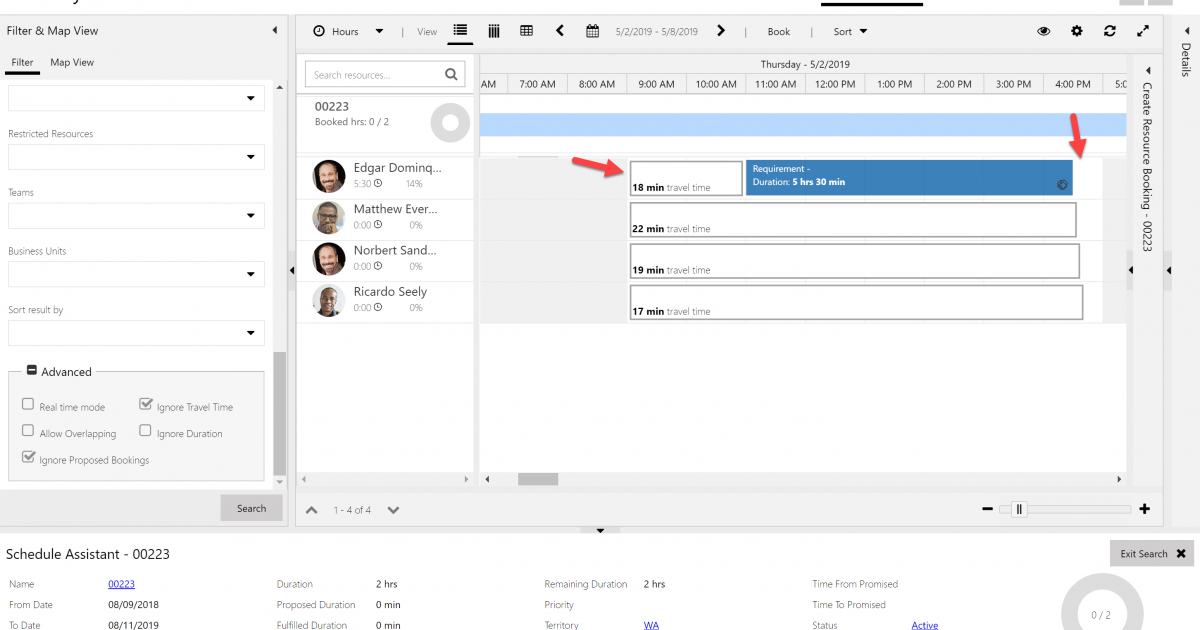
Below is a screenshot showing the same scenario, except that there is no 30-minute opening at the end of the day. Because there is no time for the resource to travel to the next location, in this case, the home location, the Schedule Assistant does NOT recommend the two-hour block at the beginning of the day, even though Ignore Travel Time is selected.
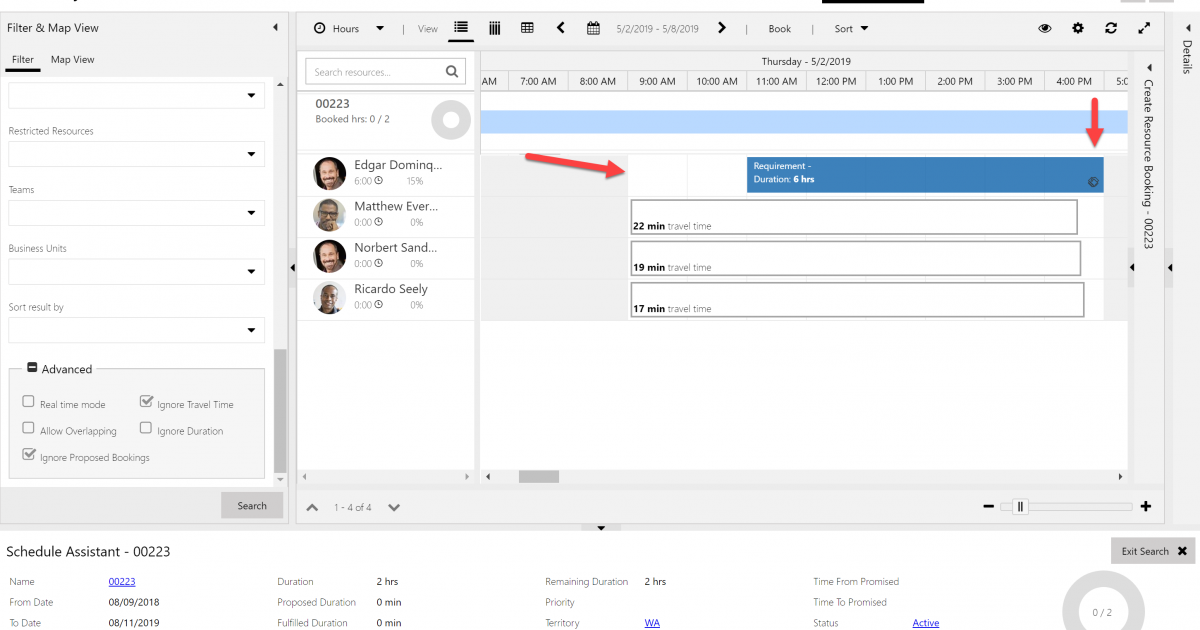
To summarize, when you “Ignore Travel Time”, the Schedule Assistant recommends a slot in which:
- The requirement can fit.
- The travel distance is within the radius.
- The resource can still travel to the next scheduled location, which can be a booking or an end location.
It does not:
- Leave enough time to travel to the requirement being scheduled.
- Add travel time into the duration of the booking.
Check out this blog post to learn how you can change the default value for “Ignore Travel Time”.
Happy scheduling!
Dan Gittler,
Principal PM Manager, Dynamics 365 Engineering



